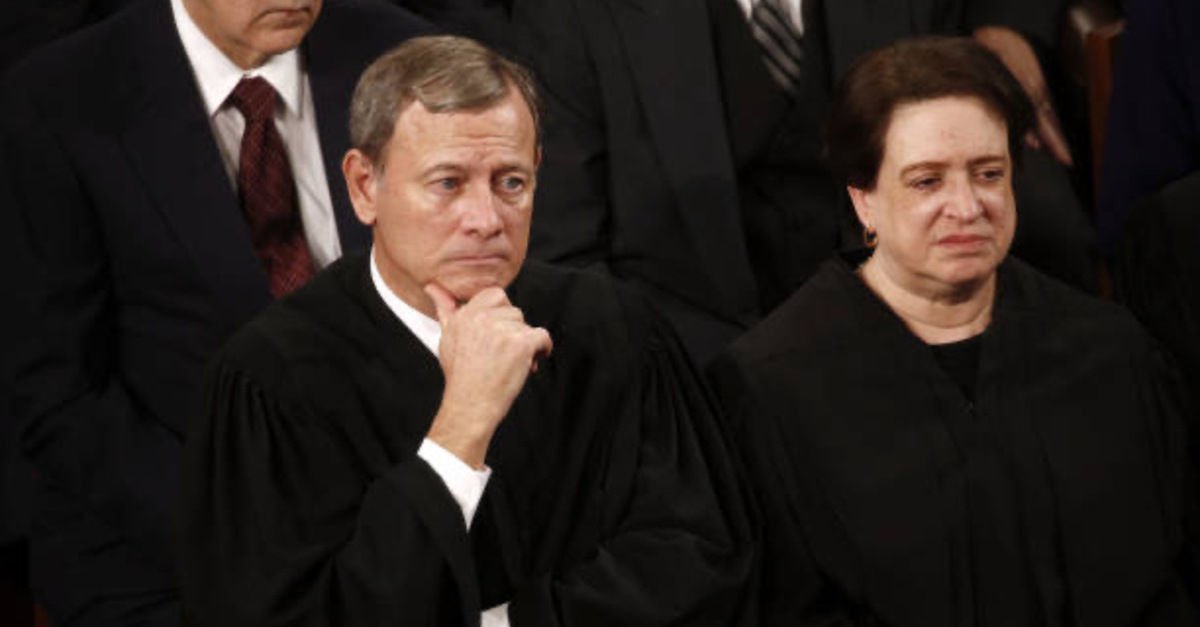
For all the saturation coverage of the high court’s 5-4-denoted partisanship, the life-tenured judges agree on things a plurality of the time. In that vein, the U.S. Supreme Court unanimously decided three cases on Wednesday.
In Shular v. United States, a criminal defendant argued that prior state court convictions did not qualify as “serious” drug offenses under a federal sentencing enhancement. The high court disagreed.
Eddie Lee Shular had six prior cocaine-related convictions in Florida when he was picked up on two additional gun-and-blow charges. He pleaded out and the trial court gave him 15 years under the Armed Career Criminal Act (ACCA), a relic of the War on Drugs, which offers an infamous mandatory minimum sentence for offenders previously convicted of a “serious drug offense.”
The dispute in the case came down to how the court should interpret the ACCA’s reference to such offenses—essentially whether the law was meant to be precise and legalistic or a broad grant for prosecutors to throw away the keys.
Shular argued that the ACCA only applied to specific “offenses whose elements a court must first expound.” Criminal justice advocates thought this both reasonable and necessary. Liberal Justice Ruth Bader Ginsburg, however, taking the side of the carceral state, argued that “Congress intended…application of [the] ACCA to all offenders who engaged in certain conduct.”
In Holguin-Hernandez v. United States, a criminal defendant argued that he had properly preserved an appeal before the trial court. The high court agreed and remanded.
Gonzalo Holguin-Hernandez was convicted on drug charges and sentenced to five years in prison—but prosecutors didn’t stop there. Since he was already on paper for a previous crime, the government argued he had violated the terms of his probation and obtained an additional 12 months.
His defense attorney objected before the trial court saying there was “no reason” the additional year in prison should be imposed and requested a departure from the sentencing guidelines because it overstated her client’s culpability. The trial judge disagreed, of course—but the appeals court made a mistake by denying his appeal simply because the defense hadn’t used the proper incantatory phrase.
Justice Stephen Breyer’s opinion notes:
By “informing the court” of the “action” he “wishes the court to take,” a party ordinarily brings to the court’s attention his objection to a contrary decision. And that is certainly true in cases such as this one, where a criminal defendant advocates for a sentence shorter than the one ultimately imposed… We do not agree with the Court of Appeals’ suggestion that defendants are required to refer to the “reasonableness” of a sentence to preserve such claims for appeal.
In Intel Corp. Investment Policy Comm. v. Sulyma, a former Intel employee sued over the company’s poor investment decisions that negatively impacted his retirement plans while Intel moved to dismiss the claims as having been filed past the statute of limitations—based on when he became aware of the poor investing. The high court took Sulyma’s side.
The Employee Retirement Income Security Act of 1974 (ERISA) has a provision which requires plaintiffs to file lawsuits within three years to the day of when they gain “actual knowledge” of an alleged fiduciary breach. Intel provided evidence that showed Sulyma had logged onto a retirements benefits website which would have tolled the ERISA provision—but that was basically their whole case. Sulyma countered that he did not “remember reviewing” the disclosures that would have shown the downward slide of his investments.
Conservative Justice Samuel Alito broke it down simply:
We granted certiorari to resolve whether the phrase “actual knowledge” does in fact mean “what it says,” and hold that it does…Although ERISA does not define the phrase “actual knowledge,” its meaning is plain.
[image via Stefani Reynolds/Bloomberg via Getty Images]